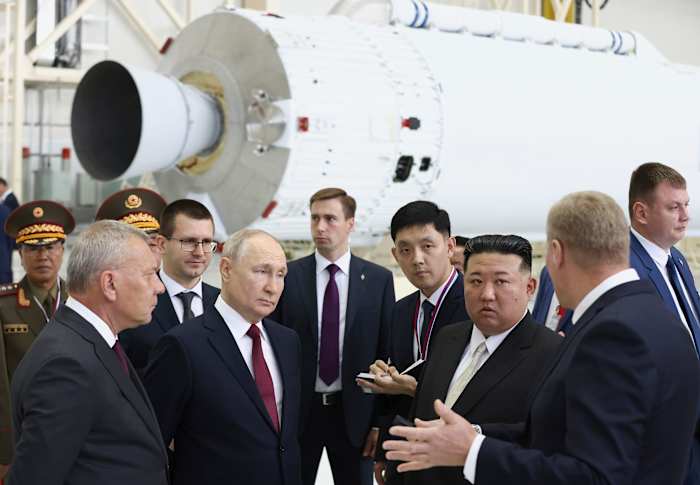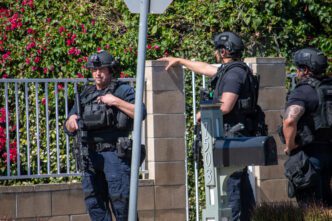A recent assessment brought to light North Korea’s potential to rapidly produce ballistic missiles for Russia’s use in Ukraine, raising significant concerns about international arms proliferation.
Research conducted by Conflict Armament Research, as presented by Jonah Leff to the U.N. Security Council, revealed that North Korea has the capability to manufacture ballistic missiles and deliver them to Russia within a short time frame. This was substantiated by the examination of missile remnants found in Ukraine, which were identified as being manufactured in North Korea, including some bearing production marks from 2024.
This rapid production and transfer capability marks the first recorded instance of such activity within a matter of months, emphasizing the evolving nature of military supply chains amidst global conflicts. Leff’s organization has been actively tracing weapon origins since 2018, providing crucial insights into their distribution and use in conflict zones.
In a meeting with Russia’s defense chief, North Korean leader Kim Jong Un expressed his support for Russia’s actions in Ukraine, as reported by North Korean state media. This political backing underscores a growing alliance between the two nations, with potential implications for international security dynamics.
Russia’s U.N. Ambassador, Vassily Nebenzia, challenged the presentation of these findings, questioning the neutrality of Leff’s research organization and critiquing the Security Council meeting’s process. Nevertheless, U.S. Ambassador Linda Thomas-Greenfield defended the findings, highlighting the importance of independent research in the face of Russian and North Korean collaboration.
The reports of North Korean missile components bearing 2023 production marks being used in Ukraine highlight the country’s extensive acquisition network, which operates despite U.N. sanctions. These findings reveal the adaptability and persistence of North Korea’s military programs despite international pressure.
North Korea’s U.N. Ambassador, Kim Song, defended the relationship between North Korea and Russia, asserting it contributes positively to international peace and denouncing criticisms from the United States and its allies. This stance reflects the ongoing geopolitical tensions and the contrasting narratives between involved nations.
The revelations about North Korea’s missile production for Russia underscore the complexities of international arms proliferation and alliances. The ongoing discussions at the U.N. highlight the challenges in maintaining global security amidst evolving geopolitical alliances and armament capabilities.
Source: News4jax








